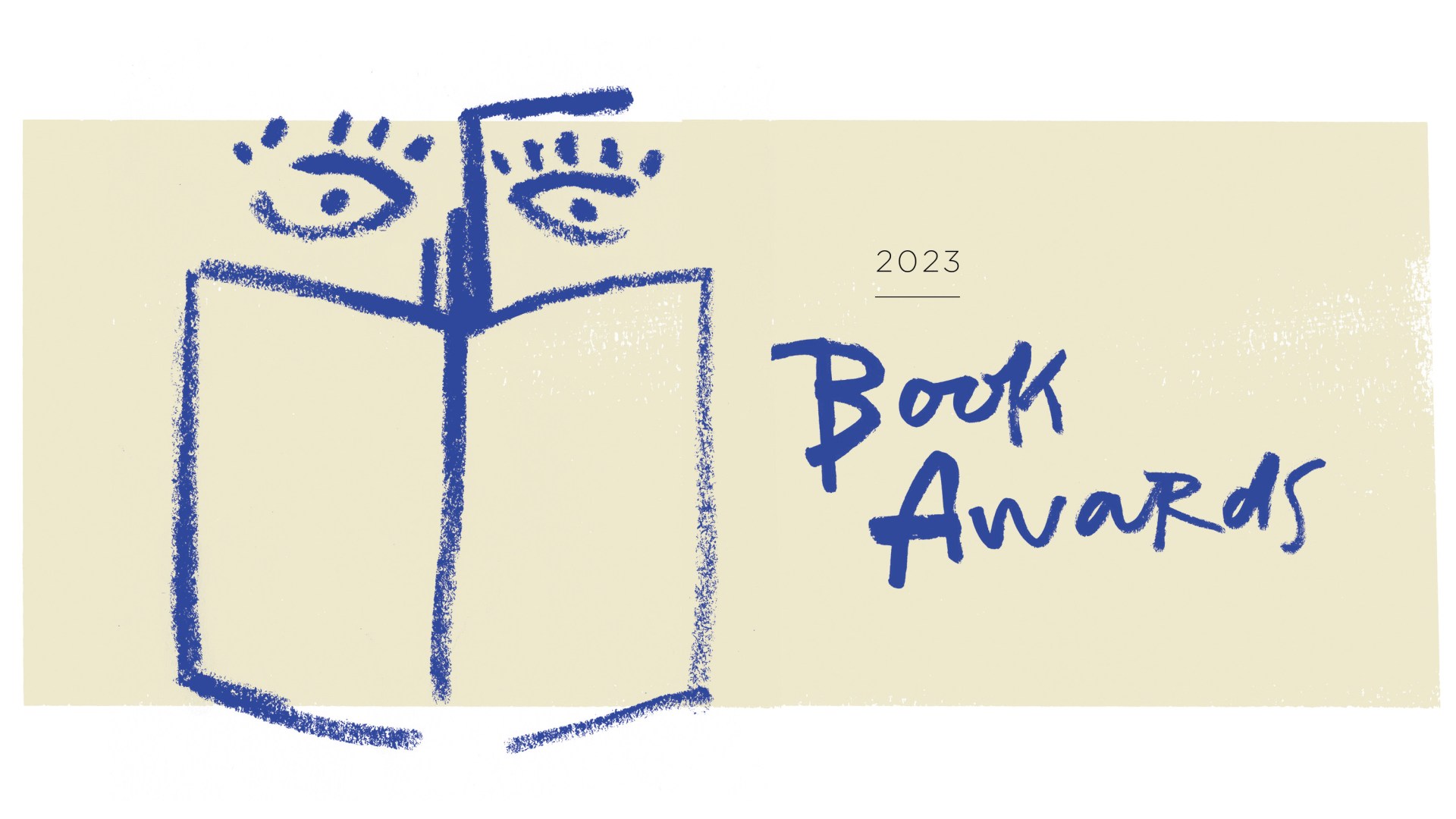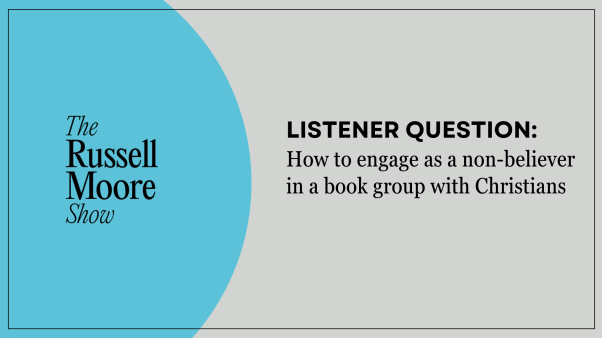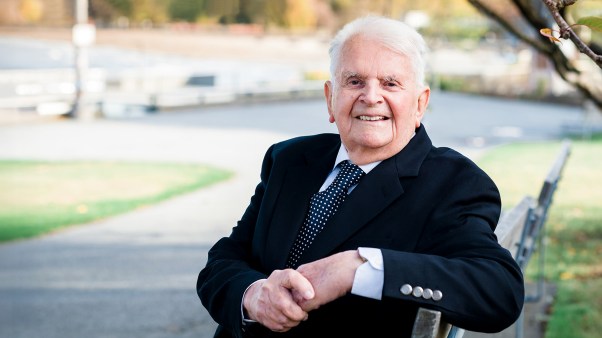[Editor’s note: The 2024 CT Book Awards are now live! They can be found here.]
When my alarm buzzes on the morning of an especially busy day, I often respond with a strange lack of urgency. A low rumble of dread builds as I ponder all the chores, errands, or work tasks that need completing. But instead of resolving to get up and get cracking, I linger in bed, nearly paralyzed by the weight of responsibility. I know what I need to do, but for some reason I can’t summon the willpower to do it.
Something similar plays out in the lives of many Christians, according to Uche Anizor, a professor at Biola University’s Talbot School of Theology. They know they’re supposed to love God, study Scripture, and pursue a life of holiness, but they can’t escape the clutches of spiritual indifference. In Overcoming Apathy: Gospel Hope for Those Who Struggle to Care, Anizor appeals to lukewarm believers, not with an accusing glare or a motivational speaker’s bullhorn, but with the compassion of someone who has fought this battle himself.
It’s a worthy choice for CT’s Book of the Year. Across the board, the judges who read and evaluated it commended Anizor for putting his finger on a problem that routinely flies under the radar, even as it sinks so many of God’s people into a spiritual quagmire.
Like Overcoming Apathy, all of our Book Awards winners have the capacity to awaken slumbering souls, whether they ring out with theological wisdom, literary beauty, pastoral warmth, or everyday encouragement. Don’t sleep on any of them. —Matt Reynolds, CT books editor
Apologetics & Evangelism

The Air We Breathe: How We All Came to Believe in Freedom, Kindness, Progress, and Equality
Glen Scrivener | The Good Book Company
The Air We Breathe is a book for this moment. Western society increasingly seeks to break free from its Christian moorings, yet at the same time it holds in high regard such values as equality, freedom, science, and compassion. Scrivener shows that these values (and more) are in fact thoroughly Christian. They appear self-evident to our 21st-century thinking, but they were certainly not the norm in the ancient world. Scrivener writes in an engaging and powerfully persuasive way, connecting with key cultural reference points from the past and present and combining apologetic arguments with compelling appeals to believers and seekers alike. His book is honest, eloquent, and at times shocking, but all in the interest of getting to the heart of the matter. —Sharon Dirckx, freelance speaker, author, and adjunct lecturer at the Oxford Centre for Christian Apologetics
Award of Merit
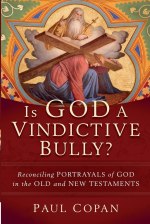
Is God a Vindictive Bully?: Reconciling Portrayals of God in the Old and New Testaments
Paul Copan | Baker Academic
Many Christians struggle to understand how a loving God could command some of the things he commands, and this book is the best single volume on the subject. Its scope is amazing. Most of us are familiar with what Copan calls “critics from without,” namely those, like Richard Dawkins, who argue that the God revealed in the Old Testament is evil. Copan forcefully answers their charges. But the real challenge today comes from “critics from within,” those who want to “unhitch” the Old Testament from the New, or worse, who wonder if the God of the Old Testament is different from the God of the New. Copan addresses questions about polygamy, “divine smitings,” foreign slaves, the Canaanite conquest, and much, much more. His work is well argued, discerning, and refreshing. —Clay Jones, chairman of the board of Ratio Christi
Finalists
Why Believe?: A Reasoned Approach to Christianity
Neil Shenvi | Crossway
Logic and the Way of Jesus: Thinking Critically and Christianly
Travis Dickinson | B&H
Biblical Studies
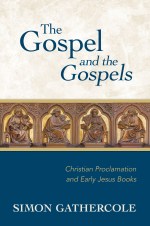
The Gospel and the Gospels: Christian Proclamation and Early Jesus Books
Simon Gathercole | Eerdmans
People are surprised when they first hear there are other gospels besides Matthew, Mark, Luke, and John. Why are these not in our Bibles? Various arguments have been proposed. One of the top New Testament scholars in the world, Simon Gathercole, brings all canonical and noncanonical gospels together and argues that the four canonical gospels share key theological elements that differentiate them: Jesus’ messiahship, his death, his resurrection, and his fulfillment of the Old Testament. While this book is geared toward scholars, it is an important argument for differentiating the canonical gospels from all the others. —Patrick Schreiner, associate professor of New Testament and biblical theology at Midwestern Baptist Theological Seminary
Award of Merit
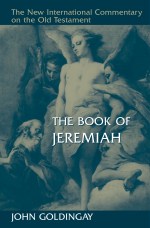
John Goldingay | Eerdmans
While it is difficult to get excited about a Bible commentary these days, Goldingay’s volume is a treasure trove of explorations into the text, traditions, and theology of the Book of Jeremiah. As a modern commentary, this volume interacts with an enormous amount of recent research and reveals Goldingay’s years of Old Testament scholarship. Without a doubt, The Book of Jeremiah will be a new standard reference for all researching and teaching the message of the Weeping Prophet. —William R. Osborne, associate professor of biblical and theological studies at College of the Ozarks
Finalists
The Samaritan Woman’s Story: Reconsidering John 4 After #ChurchToo
Caryn A. Reeder | IVP Academic
The Gospel of John: A Theological Commentary
David F. Ford | Baker Academic
Bible & Devotional

Heaven and Nature Sing: 25 Advent Reflections to Bring Joy to the World
Hannah Anderson | B&H
Written with creative eloquence, this book invites readers to pause and reflect on the hope, faith, joy, and love communicated through the coming of our Savior. Anderson uses ordinary, everyday moments as a lens through which to gain insight into parts of the Advent story we often overlook. While each devotional runs only a few pages, all are full of wisdom. In a time when Christmas tends to be tainted by commercialism, Heaven and Nature Sing is a breath of fresh air. —Elizabeth Woodson, author and Bible teacher
Award of Merit
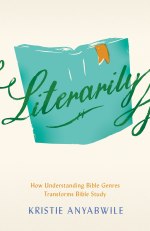
Literarily: How Understanding Bible Genres Transforms Bible Study
Kristie Anyabwile | Moody
Gaining tools to understand the Bible can feel like getting your prescription glasses updated: Things you didn’t realize you were missing suddenly emerge to your joy. That’s what happens when one uses the strategies Anyabwile recommends in this book. Her accessible writing is a helpful starting point for understanding the various forms of writing we find in the Scriptures, and her warm and passionate tone reminds us that our goal is not just knowledge, but transformation under the Word. —Taylor Turkington, author and director of BibleEquipping
Finalists
Scribes and Scripture: The Amazing Story of How We Got the Bible
John D. Meade and Peter J. Gurry | Crossway
Sheltering Mercy: Prayers Inspired by the Psalms
Ryan Whitaker Smith and Dan Wilt | Brazos Press
Children
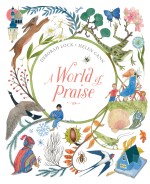
Deborah Lock | Eerdmans
There’s beauty in this book, not only in its captivating pictures, but in its affection for the places and people that span God’s world. It makes us marvel at the earthly home God has created for us and long for the day Jesus returns to make it all flawlessly, sparklingly his. This book has a song-like quality. It’s a carol to the Lord of all the earth. Read it alongside a psalm that sings of how the world bursts with the Creator’s glory. Or read it alongside the prophets, who gaze at distant lands with the good news that the Savior is coming to restore all beauty and be the delight of all nations. —Jack Klumpenhower, author of Show Them Jesus: Teaching the Gospel to Kids
Award of Merit
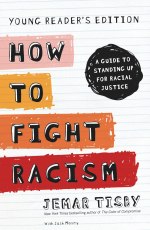
How to Fight Racism Young Reader’s Edition: A Guide to Standing Up for Racial Justice
Jemar Tisby | Zonderkidz
How to Fight Racism gives a challenging overview of the history of racism in the US, opening the eyes of young people to the inequalities and segregation existing today. With practical advice and inspiring stories, Tisby empowers children to engage with the reality of racism and change things for the future. It’s great to see a book encouraging young people to seek out relationships across racial divides, armed with the humility of Christ’s example and the truth that all people are made in God’s image. —Steph Williams, children’s writer, illustrator, and graphic designer
Finalists
Bare Tree and Little Wind: A Story for Holy Week
Mitali Perkins | WaterBrook
Fly High: Understanding Grief with God’s Help
Michelle Medlock Adams and Janet K. Johnson | End Game Press
Young Adults
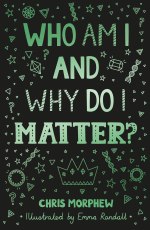
Chris Morphew | The Good Book Company
In the latest installment in his Big Questions series, Morphew asks—and answers—what are perhaps the primary questions adolescents wrestle with: Who am I? Why do I matter? Relatable and accessible, the book never talks down to its young readers. Rather, their concerns are taken seriously, whether fitting in with friends, grappling with social media, or simply wondering if they can be themselves without social repercussions. Morphew takes readers back to Scripture, offering examples from the Bible and plenty of reminders that we are made in God’s image, that we have worth based on that simple fact, and that we are called to follow Christ. Even better, he offers the hope of the gospel, so that past mistakes don’t define current self-worth or the future. —Betsy Farquhar, managing editor and staff writer at Redeemed Reader
Award of Merit
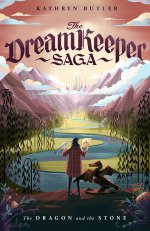
The Dragon and the Stone (The Dream Keeper Saga, Book 1)
Kathryn Butler | Crossway
With nods to Narnia and The Neverending Story, Butler has crafted a portal fantasy adventure with charm and wisdom for middle-grade readers. After encountering a dragon slurping chili in her kitchen one afternoon, main character Lily McKinley is led by the creature into the Realm, a new dimension where dreams live and the nightmarish Shrouds threaten at every turn. It’s a timeless formula, and Butler captures the high-stakes quest with a confident knowledge of her own world, as well as humor and a truly engaging voice. —Glenn McCarty, author of the Tumbleweed Thompson series
Finalists
Scarlet Hiltibidal | B&H
Your New Playlist: The Student’s Guide to Tapping into the Superpower of Mindset
Jon Acuff | Baker
Christian Living & Spiritual Formation
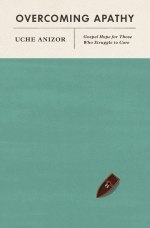
Overcoming Apathy: Gospel Hope for Those Who Struggle to Care
Uche Anizor | Crossway
One of the more surprising temptations I’ve experienced in recent years isn’t toward overt or egregious sin, but toward numb inaction. In a postpandemic world where politics are polarized and the news cycle constantly yells, “Fire!”, many followers of Christ are too overwhelmed to care. We’re paralyzed and unsure how to hold all the sorrows in our hearts. Anizor graciously meets Christians in their apathy, helping readers discover the origin of their own numbness and offering gospel-rooted reasons for renewed passion. He challenges us to love deeper, with a Christlike affection that throws off apathy and propels us to action. —Emily Jensen, cofounder and content director of Risen Motherhood
(Read CT’s interview with Uche Anizor.)
Award of Merit
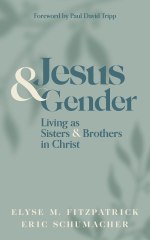
Jesus and Gender: Living as Sisters and Brothers in Christ
Elyse Fitzpatrick and Eric Schumacher | Lexham Press
Jesus and Gender is an incredibly timely book. There is much debate in evangelical circles surrounding the roles of men and women in the church, with complementarianism and egalitarianism the two common categories. But Fitzpatrick and Schumacher tackle the subject with fresh language, calling us to be “Christic” men and women who seek to “cooperate together for [God’s] glory” rather than “compete for glory amongst themselves.” —Vance Pitman, president of Send Network and founding pastor of Hope Church Las Vegas
(Read CT’s review of Jesus and Gender.)
Finalists
Good and Beautiful and Kind: Becoming Whole in a Fractured World
Rich Villodas | WaterBrook
(Read an excerpt from Good and Beautiful and Kind.)
How to Inhabit Time: Understanding the Past, Facing the Future, Living Faithfully Now
James K. A. Smith | Brazos Press
Church & Pastoral Leadership
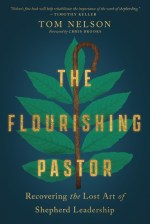
The Flourishing Pastor: Recovering the Lost Art of Shepherd Leadership
Tom Nelson | InterVarsity Press
Without attempting to be novel or imposing unreasonable expectations, Nelson sets out to recover what he considers the lost art, among pastors, of shepherd leadership. Refreshingly, he doesn’t come off as superior or the lone expert in the field. He admits mistakes in his personal walk, ministry habits, and pastoral labors. I found plenty of pastoral encouragement, practices to ponder, and workable habits for shepherd leadership. —Phil Newton, director of pastoral care and mentoring for the Pillar Network
Award of Merit (TIE)
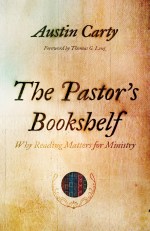
The Pastor’s Bookshelf: Why Reading Matters for Ministry
Austin Carty | Eerdmans
As a lifelong reader, I’ve seen the value and richness that come from reading widely and deeply. A pastor whose mind and heart are formed by deep engagement with books can understand and communicate capital-T truth more clearly, creatively, and insightfully. By giving pastors permission to include reading as part of their regular schedules, Carty offers the gift of slowing down to think deeply and the opportunity for timeless spiritual themes to take root in their hearts. This is a recipe for greater wisdom, empathy, and love—qualities that in turn benefit the people God has called them to shepherd. —Kelley Mathews, author and editor
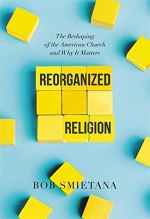
Reorganized Religion: The Reshaping of the American Church and Why It Matters
Bob Smietana | Worthy
Smietana helps church leaders face the sobering reality of the religious landscape in which they serve. Drawing on statistics and real-life stories, he demonstrates the waning influence of organized religion in many people’s lives. Alongside pictures of churches in decline, however, he shows us churches that have turned the corner toward growth and relevance in their communities. And he reminds us of the positive contributions churches make in American life and the negative impact our culture will experience as they decline or cease to exist. —Michael Duduit, dean of Clamp Divinity School and executive editor of Preaching magazine
Finalist
On Earth as in Heaven: Theopolis Fundamentals
Peter J. Leithart | Lexham
Culture & the Arts

Christian Poetry in America Since 1940: An Anthology
Edited by Micah Mattix and Sally Thomas | Iron Pen
I was very impressed with this anthology, which has a detailed and thoughtful introduction, helpful introductions to each poet, a few well-placed and appropriate footnotes, and amazingly good poems: challenging, diverse, and unsentimental. There is a great balance between famous and lesser-known poets, denominational backgrounds, and formal and free-verse poetry. A colleague of mine, who teaches on Christianity and literature, told me he has never encountered a resource like this and that he would find it very useful for his class. —Eleanor Nickel, English professor and program director at Fresno Pacific University
Award of Merit
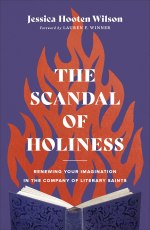
The Scandal of Holiness: Renewing Your Imagination in the Company of Literary Saints
Jessica Hooten Wilson | Brazos Press
Wilson deftly plows the fertile field of literature, wonder, and the Christian mind. The book reads as both journal and love letter to her own past and her passion for literature. Her chapters brim with wonderment and awe, and I enjoyed the feeling of longing to read the books she celebrates. In the hands of another author, this book could have felt academic and stuffy. But Wilson’s prose is elegant and clear while retaining the warmth of a voice inviting you to come sit by the fire and listen to a story. —John Hendrix, illustrator and children’s author
(Read an excerpt from The Scandal of Holiness.)
Finalists
A Supreme Love: The Music of Jazz and the Hope of the Gospel
William Edgar | IVP Academic
(Read CT’s review of A Supreme Love.)
Reading Black Books: How African American Literature Can Make Our Faith More Whole and Just
Claude Atcho | Brazos Press
(Read CT’s interview with Claude Atcho.)
Fiction
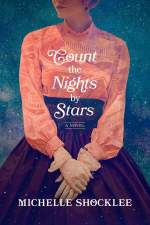
Michelle Shocklee | Tyndale
In this dual-timeline novel, Shocklee tackles challenging topics like immigration, discrimination, and human trafficking with grace and hope, and her vivid use of historical detail adds intrigue to the story. Her writing is smooth and engaging, and I found myself pulled into the storylines of both time periods, which rarely happens with books of this sort. The way this book opens hearts and minds to the trauma experienced by victims of human trafficking is truly commendable. —Christina Suzann Nelson, author of What Happens Next , Shaped by the Waves , and other novels
Award of Merit
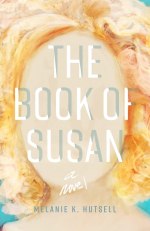
Melanie Hutsell | Paraclete
My reaction to this book might be biased by the fact that I watched the wife of a close friend endure the anguish of being diagnosed with bipolar disorder after the birth of their first child, an experience that shattered their marriage. The Book of Susan stirred memories of that time, reminding me how vital it is to embrace compassion and tenderness toward those suffering the ravages of this illness. Hutsell’s writing is raw, real, and beautiful. While taking us inside a journey few can truly understand, she guides readers into the reality that all of us are flawed, bruised, and broken. Within that admission, there is hope and the chance for healing. —James L. Rubart, novelist and professional marketer
Finalists
Jonathan Geltner | Slant
Karen Kingsbury | Atria Books
History & Biography
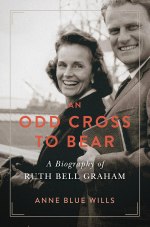
An Odd Cross to Bear: A Biography of Ruth Bell Graham
Anne Blue Wills | Eerdmans
This is historical biography at its finest. Wills has a profound empathy for Ruth Graham, born of meticulous research and the insights of gifted scholarship. Graham was a critic of second-wave feminism, and yet, as Wills shows, she also “devised her own ethic of Christian womanhood, characterized by ‘adjusting’ to” her famous evangelist husband. This concept of “adjustment” becomes a central thread of the book, not only clarifying how Graham negotiated her own womanhood but also illuminating the complex relationship between evangelical womanhood and feminism. Both moving and captivating, An Odd Cross to Bear will be the standard work on Ruth Graham in her own right, as well as essential reading for anyone wishing to better understand Billy Graham, Ruth Graham, and their movement. —Sarah Irving-Stonebraker, associate professor of history and Western civilization at Australian Catholic University
Award of Merit
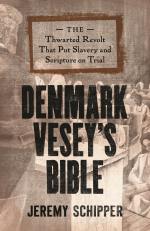
Denmark Vesey’s Bible: The Thwarted Revolt That Put Slavery and Scripture on Trial
Jeremy Schipper | Princeton University Press
Schipper’s book offers a concise but comprehensive look at how the Bible was litigated by enslaved people and white slaveholders before, during, and after Denmark Vesey’s planned 19th-century slave rebellion. It was common, in early American history, for debates on morality and criminality to involve dueling interpretations of Scripture, and Schipper illustrates how biblical language was co-opted by whites not only to strengthen slavery in the abstract but also to aid white legal responses to Vesey and his coconspirators. —Miles Smith IV, assistant professor of history at Hillsdale College
(Read CT’s review of Denmark Vesey’s Bible.)
Finalists
Lester Ruth and Lim Swee Hong | Baker Academic
Cotton Mather’s Spanish Lessons: A Story of Language, Race, and Belonging in the Early Americas
Kirsten Silva Gruesz | Harvard University Press
Marriage & Family
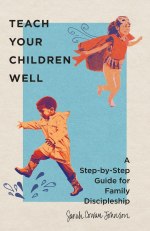
Teach Your Children Well: A Step-by-Step Guide for Family Discipleship
Sarah Cowan Johnson | InterVarsity Press
No parents can guarantee their children will walk in faithfulness to Christ. Our children’s eternal souls are first and foremost in the hands of God. But God, in his sovereign design, has not only given parents children, but given children parents. Johnson encourages and challenges parents with the call to be the primary disciplers of their children. She offers practical help supported by experience, research, and Scripture alike. —Curtis Solomon, assistant professor of biblical counseling at Boyce College
Award of Merit
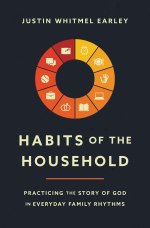
Habits of the Household: Practicing the Story of God in Everyday Family Rhythms
Justin Whitmel Earley | Zondervan
There is no shortage of parenting books on the market, but Earley manages to break through the noise and offer a timely (and timeless) appeal to the power of liturgy within the home. The household rhythms and practices he advocates are neither onerous nor ridiculous, but simple ways for parents to lovingly disciple their children through the power of habit. Earley’s humor and honest vulnerability shine through, and the reader has a sense of getting to know his lovely family on each page. I’ll be returning to this book with joy for many seasons. —Jonathan Holmes, founder and executive director of Fieldstone Counseling
Finalists
It Takes More Than Love: A Christian Guide to Navigating the Complexities of Cross-Cultural Adoption
Brittany Salmon | Moody
The Race-Wise Family: Ten Postures to Becoming Households of Healing and Hope
Helen Lee and Michelle Ami Reyes | WaterBrook
Missions & Global Church
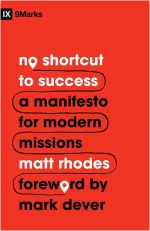
No Shortcut to Success: A Manifesto for Modern Missions
Matt Rhodes | Crossway
This volume provides a thorough appraisal of methods in American missionary circles that have gained massive popularity because they promise a vast harvest of new converts in the shortest possible time, with minimal effort or preparation from the missionaries themselves. For Rhodes, the appeal of these “silver-bullet” formulas reflects a “distaste for professionalism” and the abandonment of the painstaking training associated with earlier Western missionary heroes like William Carey and Adoniram Judson. His assessment is careful but devastating. He weighs in on erroneous obsessions with statistics, disparagement of traditional missionary methods, false or misleading representations of success, and distorted (or defective) biblical understandings of mission work. Most of the book, however, is devoted to making an energetic case for the missionary vocation as a profession, with the Pauline phrase “ambassadors for Christ” as a centerpiece. —Jehu J. Hanciles, director of the World Christianity program at Candler School of Theology and author of Migration and the Making of Global Christianity
Award of Merit
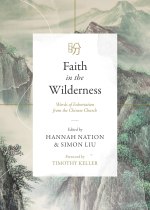
Faith in the Wilderness: Words of Exhortation from the Chinese Church
Edited by Hannah Nation and Simon Liu | Lexham
The Chinese church has long been a model of how to chi ku (eat bitterness) while still walking faithfully with God. This book affirms that in the face of persistent persecution and suffering, the Chinese church, broadly speaking, continues to forge ahead in spreading the gospel throughout China and beyond. The personal reflections gathered here will humble readers and, hopefully, expand their understanding of the global church. There is much to learn from the Chinese church, and Faith in the Wilderness offers a good place to start. —Jamie Sanchez, associate professor of intercultural studies at Biola University
(Read an excerpt from Faith in the Wilderness.)
Finalists
The Realities of Money and Missions: Global Challenges and Case Studies
Edited by Jonathan J. Bonk, Michael G. DiStefano, J. Nelson Jennings, Jinbong Kim, and Jae Hoon Lee | William Carey Publishing
Virtuous Persuasion: A Theology of Christian Mission
Michael Niebauer | Lexham
Politics & Public Life
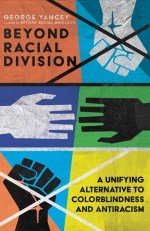
Beyond Racial Division: A Unifying Alternative to Colorblindness and Antiracism
George Yancey | InterVarsity Press
Yancey proposes a compelling alternative to our current racial stalemate that—dare I say it?—actually gives me hope. Instead of touting colorblindness or antiracism, Yancey asks us to consider how we approach this issue instead of focusing on a desired outcome. Attempts to thread the needle between two extremes so often get the worst of both or simply fail spectacularly. They call it the mushy middle for a reason. But Yancey is not mushy. On the contrary, he writes clearly and persuasively, and he advances an argument that is internally coherent and backed by social science. Finally, Yancey writes movingly about his own experiences, demonstrating that he, like all of us, has much to learn. —James E. Bruce, professor of philosophy at John Brown University
(Read CT’s review of Beyond Racial Division.)
Award of Merit
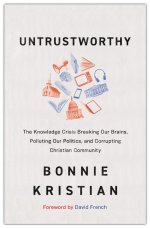
Bonnie Kristian | Brazos Press
There is a discernment crisis in pulpits and pews across the nation: We have lost the ability to name truth. In a climate where conspiracy theories and half-truths abound, Kristian writes with piercing insight into the epistemological crisis facing the church and the broader society. She examines the issues that have brought us to this state of affairs and offers wise counsel for navigating our current media and information envi- ronment. —Kathryn Freeman, writer, speaker, and cohost of the podcast Melanated Faith
(Read CT’s review of Untrustworthy.)
Finalists
What Are Christians For?: Life Together at the End of the World
Jake Meador | InterVarsity Press
(Read CT’s review of What Are Christians For?.)
Uncommon Unity: Wisdom for the Church in an Age of Division
Richard Lints | Lexham
(Read CT’s review of Uncommon Unity.)
—
Theology (popular)
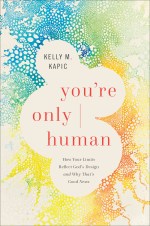
You’re Only Human: How Your Limits Reflect God’s Design and Why That’s Good News
Kelly M. Kapic | Brazos Press
Some theology books offer in-depth treatments of a particular doctrine. Others seek to serve as guides for studying theology. You’re Only Human might seem much more practical than either of these, since it calls us to accept the limitations of being human as good gifts from God. But Kapic manages to convey incredible depth of doctrinal insight and teaching for such a supposedly “practical” book. From the nature of the Incarnation and the proper understanding of Mary to our union with Christ and the work of the Holy Spirit, Kapic covers enormous theological ground with detail and nuance, all while keeping the discussion alive and intimately connected to our own lives. Each chapter could be a book in itself. —Emily G. Wenneborg, Pascal Study Center director and assistant professor at Urbana Theological Seminary
(Read CT’s interview with Kelly Kapic.)
Award of Merit
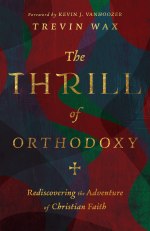
The Thrill of Orthodoxy: Rediscovering the Adventure of Christian Faith
Trevin Wax | InterVarsity Press
This book presents a well-written, accessible, and winsome apologetic for recapturing and embracing the orthodox and historic Christian faith in the modern world. The church desperately needs to read and heed books like this. I plan on using this book in the context of my local congregation. Superb! —Anthony Selvaggio, senior pastor of Rochester Christian Reformed Church
(Read CT’s review of The Thrill of Orthodoxy.)
Finalists
Fruitful Theology: How the Life of the Mind Leads to the Life of the Soul
Ronni Kurtz | B&H
Reading Theology Wisely: A Practical Introduction
Kent Eilers | Eerdmans
Theology (academic)
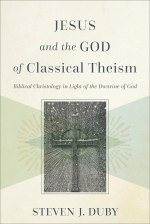
Jesus and the God of Classical Theism: Biblical Christology in Light of the Doctrine of God
Steven J. Duby | Baker Academic
In this erudite and substantial volume, Duby examines New Testament Christology and how it relates to the doctrines of so-called classical theism. It is an important work, especially at a moment in evangelical theology, and in Christian theology more broadly, when contemporary theologians are rediscovering and reappraising the rich resources of the Christian past. Duby interacts with a wide range of sources: ancient philosophers, church fathers, medieval doctors, Reformers, and post-Reformation scholastics, as well as modern theologians and biblical exegetes. But most impressive is Duby’s deep engagement with the text of Scripture itself, which he treats with exegetical care and theological earnestness. —Luke Stamps, professor of biblical and theological studies at Oklahoma Baptist University
Award of Merit
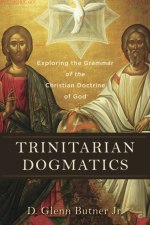
Trinitarian Dogmatics: Exploring the Grammar of the Christian Doctrine of God
D. Glenn Butner Jr. | Baker Academic
This book helpfully lays out the landscape of Trinitarian dogmatics. Butner does a fine job at presenting the major issues and carefully defining the edges of orthodoxy from the vantage points of Scripture, history, and philosophy. He is refreshingly reserved, too, on many difficult issues on which orthodox theologians have historically differed. In that sense, while Butner is clear, persuasive, and convictional, he is also modest in his aims. I predict this book will become standard in the classroom for a long time. The truly curious reader will not walk away empty-handed. —Samuel G. Parkison, assistant professor of theological studies at Gulf Theological Seminary in the United Arab Emirates
(Read CT’s review of Trinitarian Dogmatics.)
Finalists
Justification by the Word: Restoring Sola Fida
Jack D. Kilcrease | Lexham Press
God in Eternity and Time: A New Case for Human Freedom
Robert E. Picirilli | B&H
Book of the Year

Overcoming Apathy: Gospel Hope for Those Who Struggle to Care
Uche Anizor | Crossway
“Meh” may be the spirit of the age in which we live, but it is more than mere indifference—it is a spiritual sickness that infects believers, churches, and cultures alike. Even if we feel like our lives are unending episodes of Seinfeld, that famous “show about nothing,” Anizor calls us from our spiritual slumber to wake up and care again. —Douglas Estes, associate professor of biblical studies and practical theology at Tabor College
Overcoming Apathy addresses an issue that feels quite prevalent in the American church, even if we hardly talk about it. Anizor succeeds in taking a vague, somewhat hard-to-define issue and turning it into a readable, immensely practical book. The real problem, as he observes, is not that believers care too little but that we care about the wrong things, while often showing indifference toward God and matters of the Spirit. I plan on recommending this book to fellow church members. It was refreshing and convicting. —Andrea Burke, women’s ministry director and host of the Good Enough podcast
(Read an excerpt from Overcoming Apathy.)

